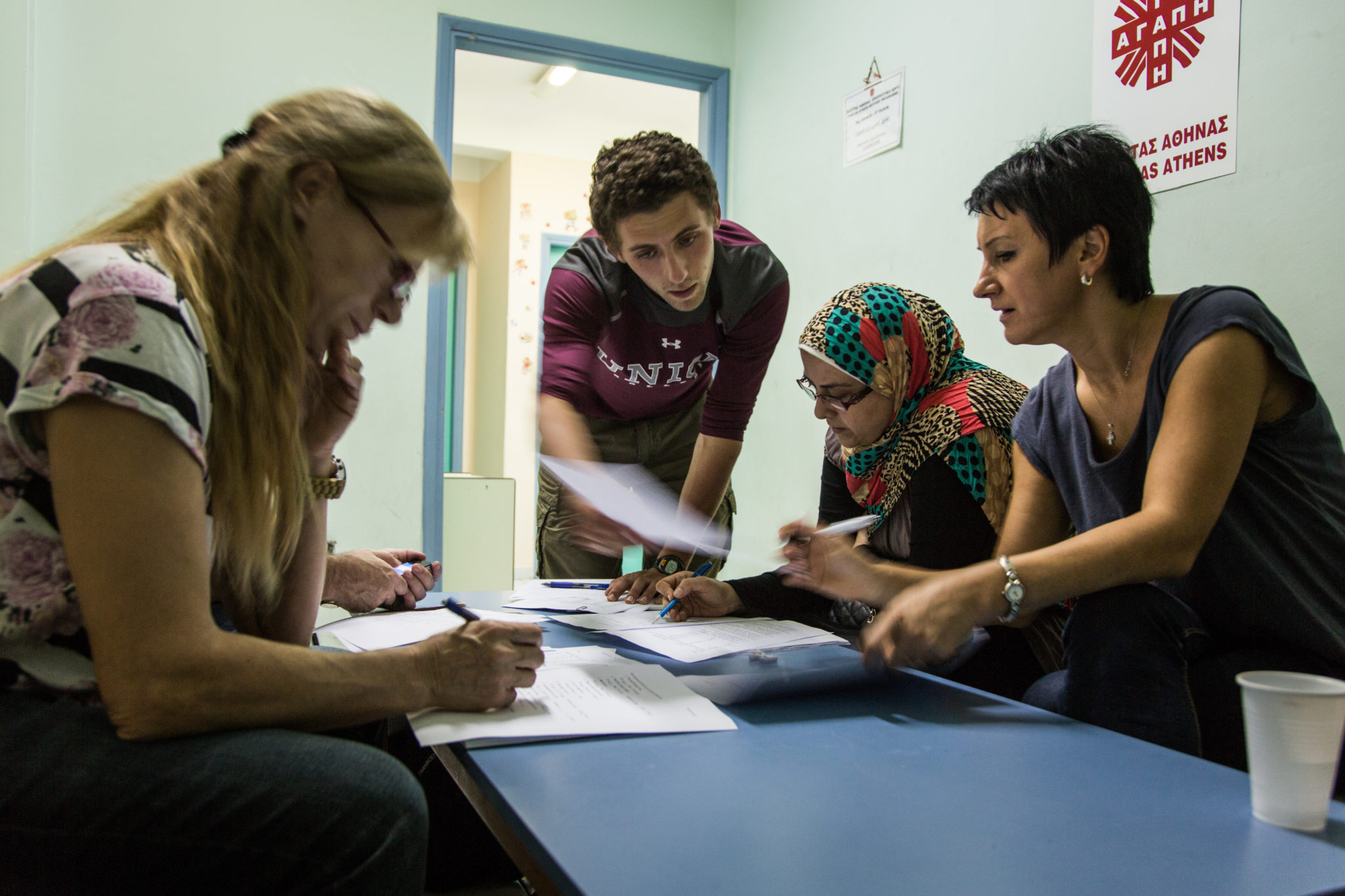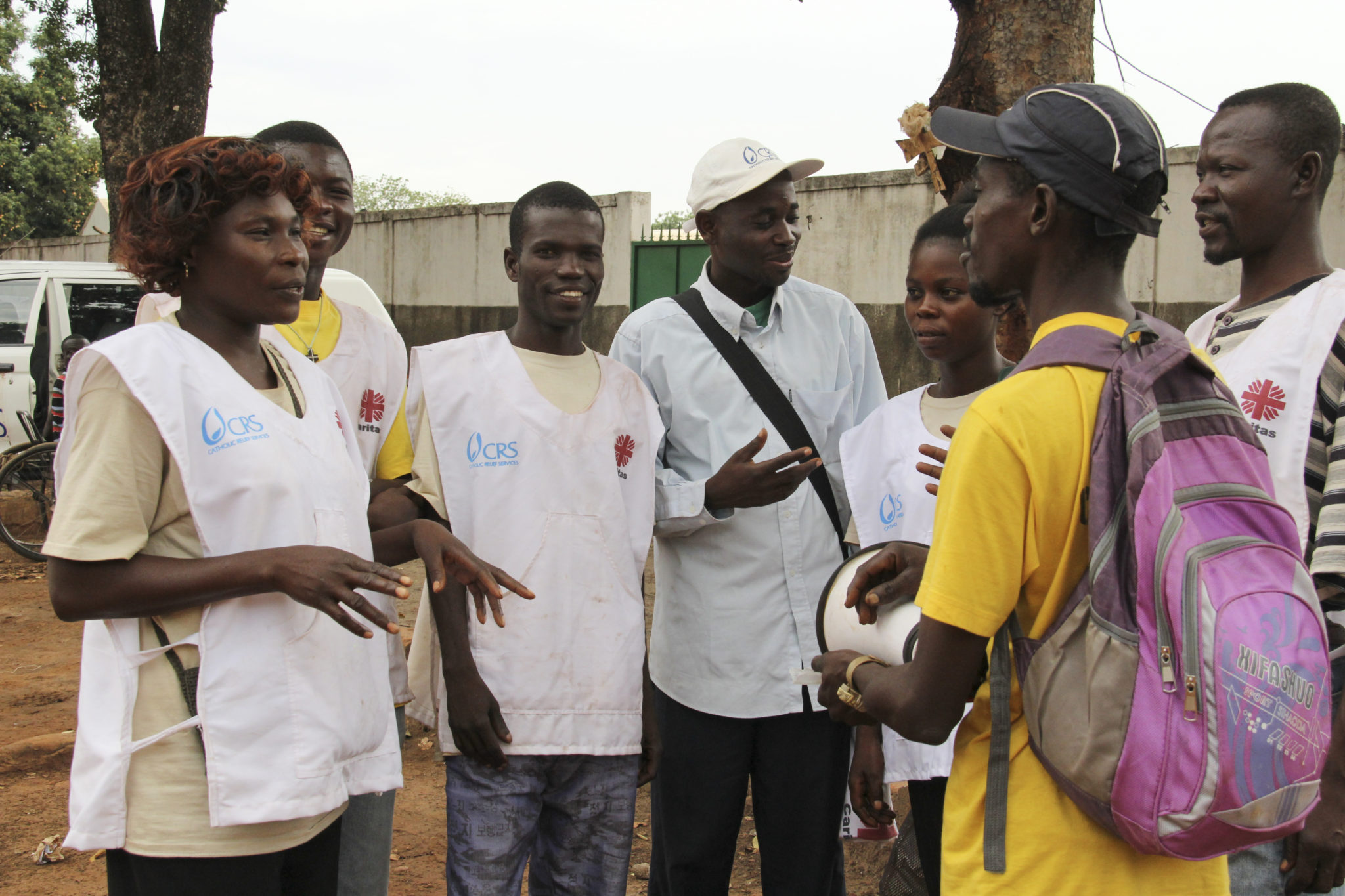Capturing the culture of Catholic Relief Services: 700 voices contribute to largest CHS Self-Assessment
CHS Alliance member Catholic Relief Services (CRS) is the official international humanitarian agency of the Catholic community in the United States. They recently completed the largest ever CHS Self-Assessment verification to-date with more than 700 staff and community members participating from 14 different countries.* To mark this mammoth achievement, we hear from Katy Cantrell, CRS’ Safe and Dignified Programming Team Lead on how capturing the CRS culture went.
Why did CRS undertake a CHS Self-Assessment verification?
CRS is committed to the principle that communities facing crisis are the closest to the challenges they face, and so must be the artisans of their own response and development. We also wholeheartedly believe that strengthening the capacity of local actors is the most effective, socially just and sustainable response to emergencies.
Yet we know that these principles and sentiments are not enough; we must walk the talk and be held accountable for the consequences of our actions.
As an agency, we’ve long demonstrated our commitment to be accountable to the people we serve by striving to meet the Core Humanitarian Standard, using a range of quality assurance tools and approaches.
However, undertaking a CHS Self-Assessment verification allowed us to go through a new level of holistic reflection, self-evaluation and, ultimately, learning and improvement as one agency, across varied departments and operational contexts.
This was an especially timely exercise given the overlapping nature of the global catastrophes we face as an international NGO committed to localization. Disasters such as the current food crisis and the climate emergency call for coordinated, collective thinking and response to address not only humanitarian needs now, but the root causes and solutions for long-term recovery and resilience.

In Athens, Greece, CRS supports the Caritas Athens Refugee Centre as it provides assistance to refugees arriving in and/or passing through the city, as well as those applying for asylum in Greece. Photo by Andrew McConnell for CRS.
What added value do you think the large number of staff and countries surveyed brought to your Self-Assessment?
The participation of so many staff, communities and partners ensured we heard diverse perspectives from a huge range of contexts and communities. With so many voices, we feel confident that the assessment results reflected our nuanced, evolving and broad landscape of work.
“It was notable that the results not only captured impressions on our work globally, but also tapped into staff perceptions on how we do the work that we do, and the culture of our agency.”
“The involvement of so many staff and communities also came with the benefit of raising awareness about the CHS – making sure that both sides are clear on the standard of work expected. The whole process created a great way for us to invite the communities we work with, to share more holistic feedback on how well we’re adhering to the Standard we hold ourselves to.”
What did you make of the results?
The results emphasized across our global staff that the areas in which we need and hope to improve are shared challenges across our organization and require shared ownership for a collective improvement plan.
It was really helpful to see where regional scores significantly differ from our overall agency scores to help us identify positive practices or where we can support with region or country program-specific initiatives.

In the midst of ongoing conflict in the Central African Republic, CRS staff coordinate their efforts to support internally displaced families with a range of assistance including food, shelter, seeds and tools as well as intensive training in social cohesion and reconciliation. Photo by Kim Pozniak/CRS.
What do you feel you’ve learned from the process?
“Going through such a participatory process—and collecting all of the data from staff, partners and communities—helped to evidence what we believed to be agency level challenges. It shone a light and clearly documented how we might be falling short on our commitments to the communities we serve.
That collective input and reflection helps us to elevate and accelerate our response to these issues—and the improvement plan will hold us accountable to making concrete changes.”
The framework of the CHS helped clarify our joint aim, the verification process validated where we thought we were struggling. Now we have an improvement plan, it offers an opportunity to bring the people we need to the table with a clearly articulated plan of how we can do and be better. We recognize the hope and potential that comes with this – specifically, that it will help us to address some “sticky” issues that require cross-departmental collaboration.
Overall, the CHS Self-Assessment verification allowed us to ensure we are meeting the Standard we have committed to, and that we are able to evolve our approach and programming based on the input of communities and partner. It’s proved that we can recognize when we need to work differently, and that we have the insight, talent and input from our partners and communities to better collectively serve those in greatest need.
Read CRS’ CHS Self-Assessment Report Executive Summary to see what the process taught them, and how they will improve the way they work to better meet their Commitments to people affected by crises:
CRS CHS Self Assessment Executive Summary
Learn more about how verifying against the CHS can capture the accountability culture in your organisation.
* The largest CHS Self-Assessment conducted to date based on the number of answers collected from staff, partners and community members.
